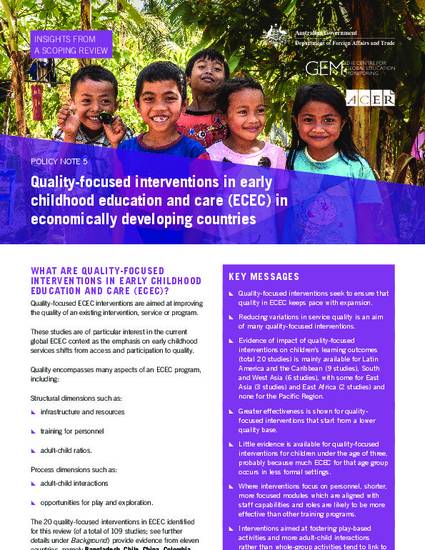
Quality-focused early childhood education and care (ECEC) interventions are aimed at improving the quality of an existing intervention, service or program. These studies are of particular interest in the current global ECEC context as the emphasis on early childhood services shifts from access and participation to quality. Quality encompasses many aspects of an ECEC program, including structural dimensions and process dimensions. Structural dimensions cover infrastructure and resources, training for personnel and adult-child ratios. Process dimensions cover adult-child interactions, and opportunities for play and exploration. The 20 quality-focused interventions in ECEC identified for this review (of a total of 109 studies; see further details under Background) provide evidence from eleven countries, namely Bangladesh, Chile, China, Colombia, Costa Rica, Ethiopia, India, Indonesia, Kenya, Uganda and Zanzibar.
Copyright Australian Council for Educational Research 2019

Insights from a scoping review: Policy note 5